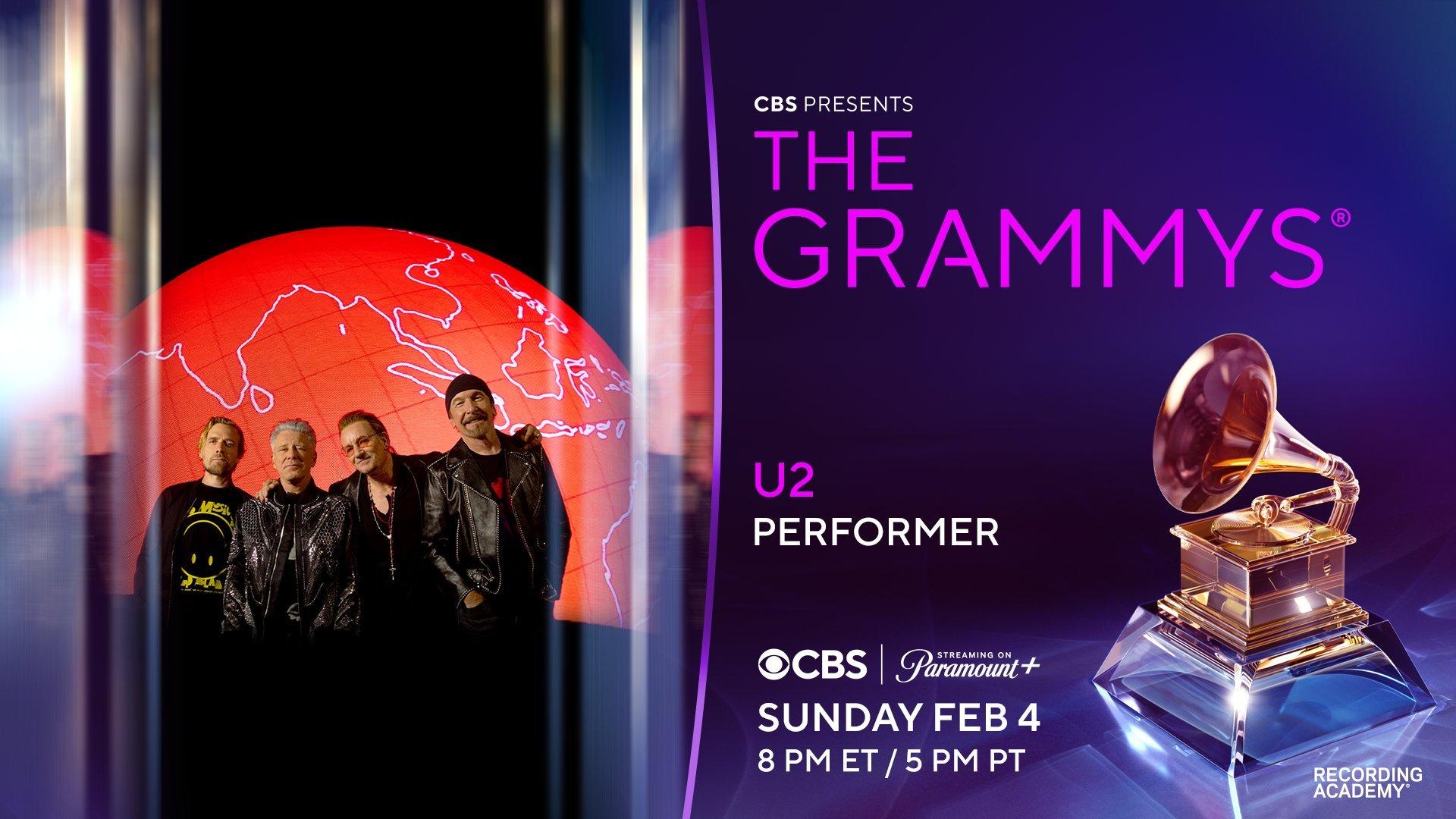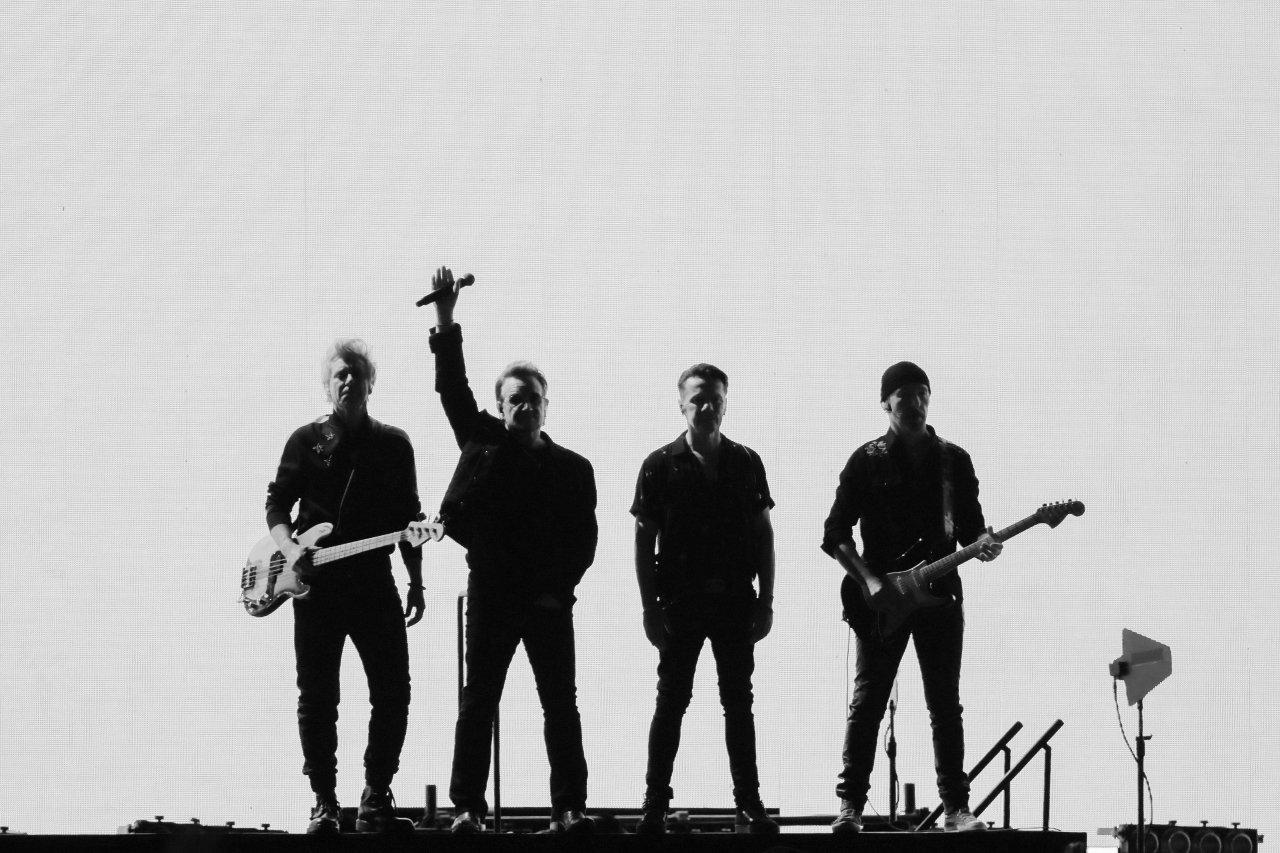Photo: Lionel Flusin/Gamma-Rapho/Getty Images

The Corrs
news
Irish Artists Receive St. Patrick's Day Boost Online
Take a musical trip to Ireland, following the path of last year's St. Patrick's day and its spikes in views, provided by YouTube
St. Patrick's day is arriving once again this year on March 17, a special time to celebrate Ireland and Irish-American heritage, including with music. It's no surprise classic rockers such as GRAMMY winners U2 and Van Morrison receive spikes in YouTube searches every year, but thanks to Billboard and YouTube's analytics, this year we get to know what acts got a special green bump last year at the leading video destination.
<iframe width="620" height="349" src="https://www.youtube.com/embed/2zt5E-ue-MA" frameborder="0" allow="accelerometer; autoplay; encrypted-media; gyroscope; picture-in-picture" allowfullscreen></iframe>
Three GRAMMY nominees saw their YouTube views come close to doubling during last year's St. Patrick's day, according to Billboard's list: Celtic Woman, the Corrs and House of Pain. Celtic Woman have a new album, Ancient Land, being released today. The Corrs' 2017 album, Jupiter Calling, was produced by T Bone Burnett and gave Ireland's most famous family band more of the raw recording style that Burnett is known for in the Americana genre. Rappers House Of Pain had disbanded by 1997, after the release of their third album. Their 1992 GRAMMY-nominated hit "Jump Around" remains an Irish flag planted firmly in the rap genre.
An intriguing byproduct of the analytics provided to Billboard's piece by YouTube is that less-recognized bands become dramatically more recognized on St. Patrick's day. So while Celtic Woman's views doubled, Celtic Thunder's views more than tripled, as did the Waterboys, although.technically the group is primarily from Scotland.
The Billboard article includes a video playlist for the five bands who saw their views increase during last year's St. Patrick's day by ten times or even more. In reverse order they are the Rumjacks, the Pogues, Dropkick Murphys, Flogging Molly, and the Dubliners. It's only fitting that the Dubliners, a traditional Irish band formed in 1962 in Dublin's O'Donoghue's Pub, led YouTube's green-spiked traffic with 15 times more views than usual.
Celebrating Irish spirit and music, including its diversity of styles, provides a unique time to reflect on this cultural connection that has played such a prominent and continuing role in American life.

Photo: Tayfun Coskun/Anadolu Agency via Getty Images
news
U2 Performs "Atomic City" & Transports The 2024 GRAMMYs To Las Vegas
Bono and co.’s long-distance return to the 2024 GRAMMYs marks the Sphere, a state-of-the-art Sin City structure. The 22-time GRAMMY winners performed a jaunty take on "Atomic City" among incredible visuals.
U2 transported Music's Biggest Night from the Crytpo.com Arena in Los Angeles to Las Vegas on Sunday night, performing their song "Atomic City" live from the Sphere.
"Guitar, she pulls the strings et cetera/ Sinatra swings, a choir sings/ Love is God and God is love/ And if your dreams don’t scare you, they’re not big enough," Bono wailed as the cameras took in the majesty and awe of the futuristic venue just off the Vegas Strip.
Following the performance, the live segment also featured a special presentation of Best Pop Vocal Album Award to Taylor Swift for 2022’s Midnights — with the superstar using her acceptance speech to announce the April 19 release date for her 11th studio album, The Tortured Poets Department.
Bono and co.’s long-distance return to the GRAMMYs (where they last performed at the 2018 GRAMMYs) marks the first live broadcast from the state-of-the-art Sin City structure, which the 22-time GRAMMY winners are currently breaking in as a performance venue with their residency U2:UV Achtung Baby Live at Sphere.
Launched in September, U2’s inaugural run of 40 shows at the Sphere will wrap on March 2. After the Dublin rockers’ final concert highlighting their 1991 GRAMMY-winning album Achtung Baby, Dead & Company will take over the venue for their own residency with an assist from John Mayer.

Image courtesy of the Recording Academy
news
U2 Will Make GRAMMY History At The 2024 GRAMMYs With The First-Ever Broadcast Performance From Sphere In Las Vegas
GRAMMY winners U2 have been announced as performers at the 2024 GRAMMYs where they will deliver the first-ever broadcast performance from Sphere in Las Vegas. The event will also feature a special awards presentation.
The globally influential, 22-time GRAMMY-winning legends U2 have been announced as performers at the 2024 GRAMMYs where they will deliver a special, history-making performance from Sphere in Las Vegas. The event will also feature a special awards presentation.
The news, announced today on social media, expands on U2's pioneering, record-setting run of their "U2:UV Achtung Baby Live At Sphere" residency, which has ushered in a new era of live entertainment innovation since launching last year. The performance at the 2024 GRAMMYs will mark the first-ever broadcast performance from Sphere, a first-of-its-kind, technologically groundbreaking venue.
U2 now join a stacked lineup of 2024 GRAMMYs performers, which includes Burna Boy, Billie Eilish, Billy Joel, Dua Lipa, Luke Combs, Olivia Rodrigo, and Travis Scott. Additional performers will be announced in the coming days and weeks. See the full list of performers and host at the 2024 GRAMMYs to date.
Learn More: 2024 GRAMMY Nominations: See The Full Nominees List
2024 GRAMMYs: Explore More & Meet The Nominees
2024 GRAMMYs: See The Full Winners & Nominees List
How To Watch The 2024 GRAMMYs Live: GRAMMY Nominations, Performers, Air Date, Red Carpet, Streaming Channel & More
2024 GRAMMYs Performers: Burna Boy, Luke Combs And Travis Scott Announced
2024 GRAMMYs Performers: Billie Eilish, Dua Lipa, And Olivia Rodrigo Announced
Get The Full 2024 GRAMMYs Experience On Live.GRAMMY.com: Performances, Interviews, Red Carpet, Backstage & More
Here Are The Album Of The Year Nominees At The 2024 GRAMMYs
Here Are The Song Of The Year Nominees At The 2024 GRAMMYs
Get To Know The Best New Artist Nominees At The 2024 GRAMMYs
Here Are The Record Of The Year Nominees At The 2024 GRAMMYs
The 2024 GRAMMYs, officially known as the 66th GRAMMY Awards, will broadcast live from Crypto.com Arena in Los Angeles on Sunday, Feb. 4, at 8 p.m. ET/5 p.m. PT on the CBS Television Network and will be available to stream live and on demand on Paramount+.^ Prior to the Telecast, the GRAMMY Awards Premiere Ceremony will broadcast live from the Peacock Theater at 12:30 p.m. PT/3:30 p.m. ET and will be streamed live on live.GRAMMY.com. On GRAMMY Sunday, fans can access exclusive behind-the-scenes GRAMMY Awards content, including performances, acceptance speeches, interviews from the GRAMMY Live red-carpet special, and more via the Recording Academy's digital experience on live.GRAMMY.com.
Trevor Noah, the two-time GRAMMY-nominated comedian, actor, author, podcast host, and former "The Daily Show" host, returns to host the 2024 GRAMMYs for the fourth consecutive year; he is currently nominated at the 2024 GRAMMYs in the Best Comedy Album Category for his 2022 Netflix comedy special, I Wish You Would.
The 66th GRAMMY Awards are produced by Fulwell 73 Productions for the Recording Academy for the fourth consecutive year. Ben Winston, Raj Kapoor and Jesse Collins are executive producers.
^Paramount+ with SHOWTIME subscribers will have access to stream live via the live feed of their local CBS affiliate on the service, as well as on demand in the United States. Paramount+ Essential subscribers will not have the option to stream live but will have access to on-demand the day after the special airs in the U.S. only.

Photo: Jeff Kravitz/FilmMagic
video
GRAMMY Rewind: Kendrick Lamar Honors Hip-Hop's Greats While Accepting Best Rap Album GRAMMY For 'To Pimp a Butterfly' In 2016
Upon winning the GRAMMY for Best Rap Album for 'To Pimp a Butterfly,' Kendrick Lamar thanked those that helped him get to the stage, and the artists that blazed the trail for him.
Updated Friday Oct. 13, 2023 to include info about Kendrick Lamar's most recent GRAMMY wins, as of the 2023 GRAMMYs.
A GRAMMY veteran these days, Kendrick Lamar has won 17 GRAMMYs and has received 47 GRAMMY nominations overall. A sizable chunk of his trophies came from the 58th annual GRAMMY Awards in 2016, when he walked away with five — including his first-ever win in the Best Rap Album category.
This installment of GRAMMY Rewind turns back the clock to 2016, revisiting Lamar's acceptance speech upon winning Best Rap Album for To Pimp A Butterfly. Though Lamar was alone on stage, he made it clear that he wouldn't be at the top of his game without the help of a broad support system.
"First off, all glory to God, that's for sure," he said, kicking off a speech that went on to thank his parents, who he described as his "those who gave me the responsibility of knowing, of accepting the good with the bad."
Looking for more GRAMMYs news? The 2024 GRAMMY nominations are here!
He also extended his love and gratitude to his fiancée, Whitney Alford, and shouted out his Top Dawg Entertainment labelmates. Lamar specifically praised Top Dawg's CEO, Anthony Tiffith, for finding and developing raw talent that might not otherwise get the chance to pursue their musical dreams.
"We'd never forget that: Taking these kids out of the projects, out of Compton, and putting them right here on this stage, to be the best that they can be," Lamar — a Compton native himself — continued, leading into an impassioned conclusion spotlighting some of the cornerstone rap albums that came before To Pimp a Butterfly.
"Hip-hop. Ice Cube. This is for hip-hop," he said. "This is for Snoop Dogg, Doggystyle. This is for Illmatic, this is for Nas. We will live forever. Believe that."
To Pimp a Butterfly singles "Alright" and "These Walls" earned Lamar three more GRAMMYs that night, the former winning Best Rap Performance and Best Rap Song and the latter taking Best Rap/Sung Collaboration (the song features Bilal, Anna Wise and Thundercat). He also won Best Music Video for the remix of Taylor Swift's "Bad Blood."
Lamar has since won Best Rap Album two more times, taking home the golden gramophone in 2018 for his blockbuster LP DAMN., and in 2023 for his bold fifth album, Mr. Morale & the Big Steppers.
Watch Lamar's full acceptance speech above, and check back at GRAMMY.com every Friday for more GRAMMY Rewind episodes.
10 Essential Facts To Know About GRAMMY-Winning Rapper J. Cole

Photo: Takashi Aoyama/Getty Images
list
What Does U2 Stand For? To Mark 'Songs Of Surrender,' 6 Facts About The 22-Time GRAMMY Winners
One of the most innovative, popular and acclaimed rock bands of all time, U2 are reexamining their past on their new album, 'Songs of Surrender.'
From their songs to their vision to their constant evolution, U2 have earned their place as one of the most popular and innovative rock bands of all time — and they have an astounding 22 GRAMMYs to show for it.
With their earthy, tactile first three albums, 1980's Boy, 1981's October, and 1983's War, the band positioned themselves at the vanguard of post-punk. Summarily, they hurtled past its parameters with a little help from producers Daniel Lanois and Brian Eno, culminating in their 1987 masterpiece The Joshua Tree.
After ripping up the rulebook with 1991's deconstructionist Achtung Baby, U2 spent the rest of the decade throwing electro-tinged curveball after curveball with Pop and Zooropa. The band then settled into something of an elder-statesmen role with 2000's All That You Can't Leave Behind and its consolidative, substantive follow-ups.
Today, U2 remain intact without a single lineup change — save drummer Larry Mullen, Jr. having to sit out a Vegas residency due to recovery from surgery. Partly as a tribute to their astonishing longevity, U2 released the Songs of Surrender — the third in their Songs of… series — on Mar. 17.
Part retrospective, part reimagining, Songs of Surrender culls 40 songs from their past — including some of their biggest hits, like "One," "Pride (In the Name of Love" and "With or Without You" — and renders them in soft-focus minimalism.
Accompanied by a memoir by Bono, Surrender: 40 Songs, One Story, the album acts as a panorama of U2's singular landscape — the spiritual searches, the self-conscious reinventions, the sociopolitical grandstanding, the triumphs and travails.
With the band back in the ether, here are some answers to common questions about Bono, the Edge, Adam Clayton and Larry Mullen Jr.
What Does U2 Stand For?
While the band shares a name with an American spy plane, the exact origin of the name is unclear. What's established, however, is that they were previously known as Feedback — one of the only musical terms they knew — and the Hype before settling on the name.
In a BBC interview, Bono and the Edge explained that a friend curated a list of names for them, and they chose U2 because they hated it the least. Bono remarked that the name gave off "futuristic" images of "the spy plane" and "the U-boat." (The name still makes him "cringe.")
What Is U2's Latest Album?
After Songs of Innocence and Songs of Experience, U2 have released Songs of Surrender, which shrinks down the often grandiose arrangements of their past work and examines them with a new lens. Produced by the Edge, the album is spread across four discs, each named after a band member.
"I just need to be more silent, and to surrender to my band as being at the core of what I'm trying to do with my life, surrender to my wife," Bono recently told NPR. "And when I say 'surrender,' I do not mean making peace with the world... I'm trying to make peace with myself, I'm trying to make peace with my maker, but I am not trying to make peace with the world.
"The world is a deeply unfair place, and I'm ready to rumble," he continued. "I'm keeping my fists up for that one."
What Is U2's Latest Book?
Bono has characterized the operating principle behind Surrender: 40 Songs, One Story as such: "I was hoping to draw in detail what I'd previously only sketched in songs. The people, places, and possibilities in my life."
Organized around the 40 selections in its attendant album with plenty of off-ramps and asides, Surrender illuminates hidden corners of Bono's history, faith and psyche like never before.
Why Is Bono Called Bono?
Born Paul David Hewson, Bono was nicknamed Bono Vox as a teen in Dublin, when he and his friends were part of a surrealist street gang named Lypton Village.
As they were all assigned nicknames, Hewson assumed the moniker Bono Vox — the name of a hearing-aid store near where they grew up, which itself came from the Latin word Bonavox, which means "good voice."
Are U2 Touring In 2023?
Come fall 2023, U2 will return to the stage after a four-year absence for a Las Vegas residency focusing on their classic Achtung Baby album.
In an unprecedented move, Mullen won't be part of the proceedings, though the band looks forward to his return.
"No one is more disappointed than us that Larry won't be joining us in Vegas," the Edge told The Telegraph, adding: "In the history of U2, you can count the shows we've missed on the fingers of one hand."
What Was U2's Biggest Hit?
From a Billboard Hot 100 standpoint, the U2 song that's made the biggest commercial splash is "With or Without You," that skyscraping, eros-meets-agape wonder from The Joshua Tree. (That song stayed at No. 1 for three weeks; "I Still Haven't Found What I'm Looking For" remained in the same position for two.)
And when you listen to the hushed, humbled rendition of "With or Without You" just released on their new album, you hear not only how their artistic achievements have resonated through the decades.
Instead hear the four men not as rock titans, but as human beings — searching, striving, and ultimately surrendering.
Living Legends: Van Morrison On New Album Moving On Skiffle, Communing With His Roots & Reconnecting With Audiences
